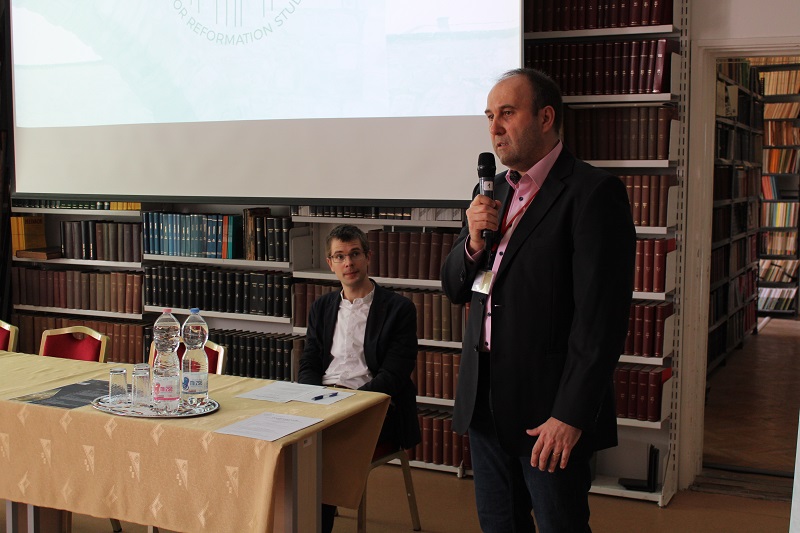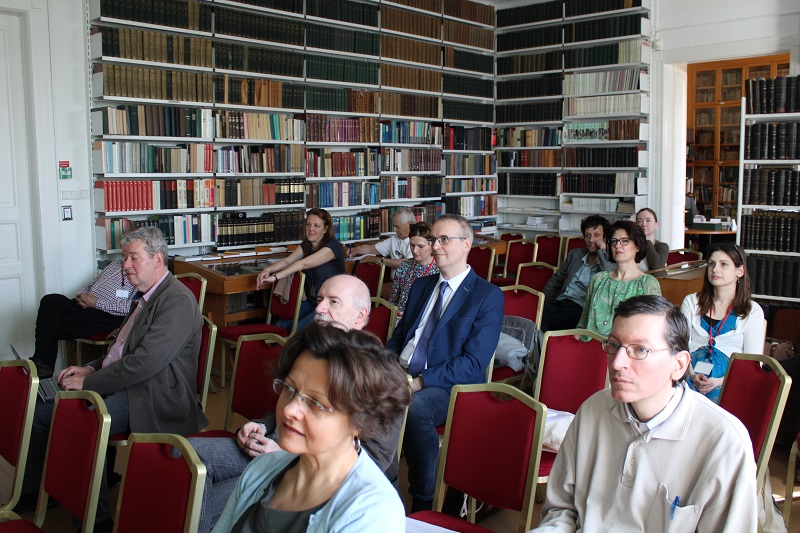17 April 2024
The Centre for Reformation Studies (CRS) hosted by the HUN-REN, RCH, Institute for Literary Studies has organised a methodological workshop in Budapest, April 9, 2024, meant to explore the early modern interrelatedness and interactions between printed books and manuscripts.

The methodological issues under scrutiny richly illustrated with spectacular print and manuscript sources focused on how the so called “print matters” and “manuscript matters” related to each other in the context of long Reformation. The emergence of disparate confessional traditions and the early modern censorship supervised by Jesuits proved to have been two further relevant factors shaping the transition of texts. Furthermore, the historical evaluation and reconstructions through case studies of how printing and handwriting habits impacted upon the production and dissemination of early modern texts resulted in a more accurate understanding of early modern mediality.

With the focus on the overlapping dimensions of print and manuscript productions the papers interpreted a large array of early modern sources from unitarian sermons to Catholic prayer literature. In addition, an impressive timespan from late medieval times to the end of the eighteenth century had been covered by the speakers who reflected on the evolution and (mis)uses of both manuscript and print sources reinforcing the idea that both early modern print and manuscript texts displayed a certain fluidity and instability. Of the many relevant findings formulated at the workshop one surely deserves special attention. Due to the Habsburg occupation of both Royal Hungary and the former Principality of Transylvania after 1690, a long eighteenth century commenced dominated by the discriminatory religious policy of a Catholic ruler and the Jesuit order preoccupied to control and isolate the Protestant book market. Strangely enough, this development brought about the emergence of a rich Protestant manuscript culture, one that rather successfully disseminated influential texts, both Hungarians and various translations, in a brave effort to satisfy the needs of a growing readership. Thus, two hundred years after the advent of printing, it was, first of all, a manuscript culture that flourished and secured the transition of Reformed ideas to the Hungarian readers of the long eighteenth century.

The workshop was the first one from a series that would be organised until 2027, and it is part of the research agenda of the CRS supported by REFORC.
Zsombor Tóth